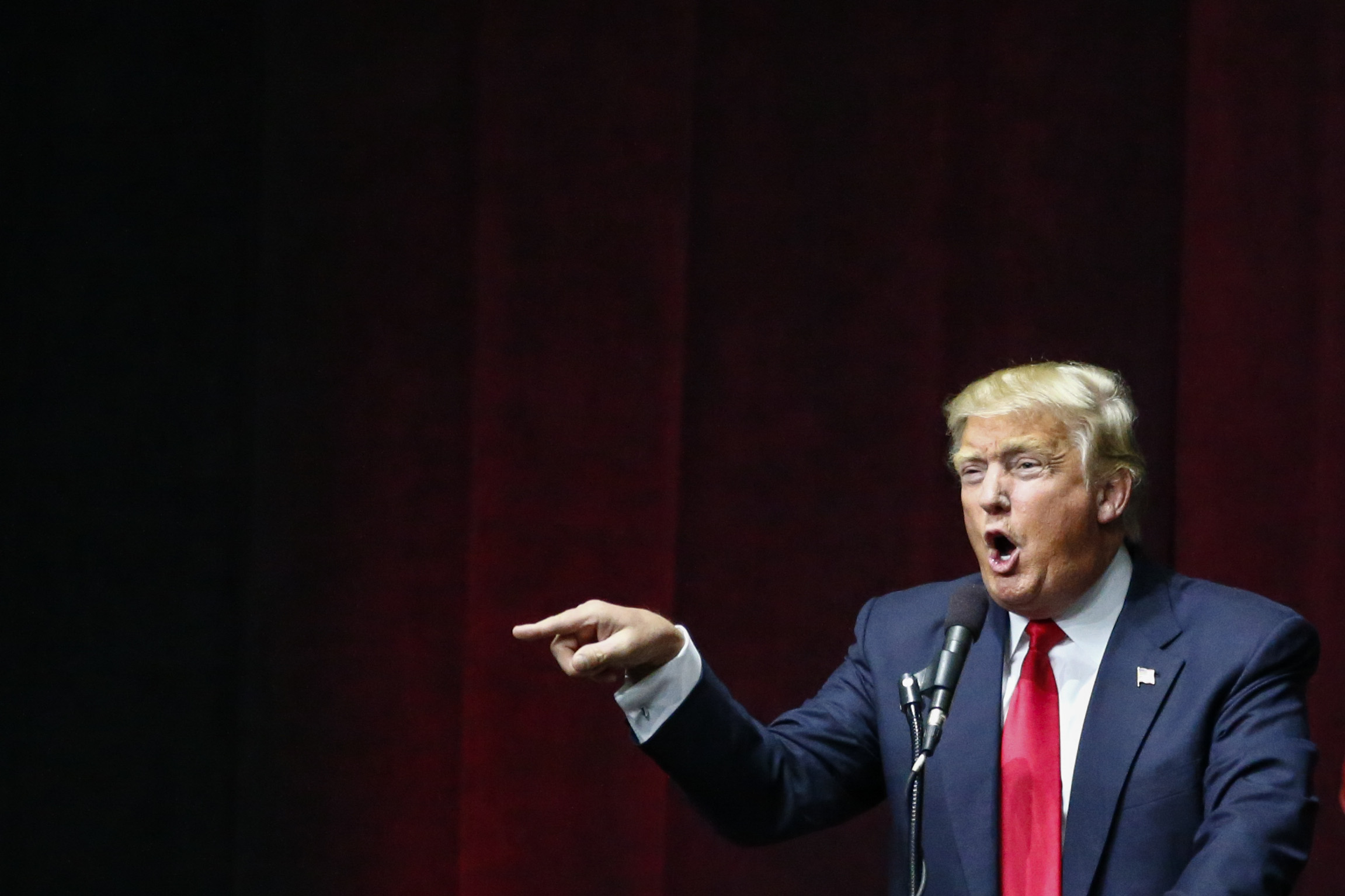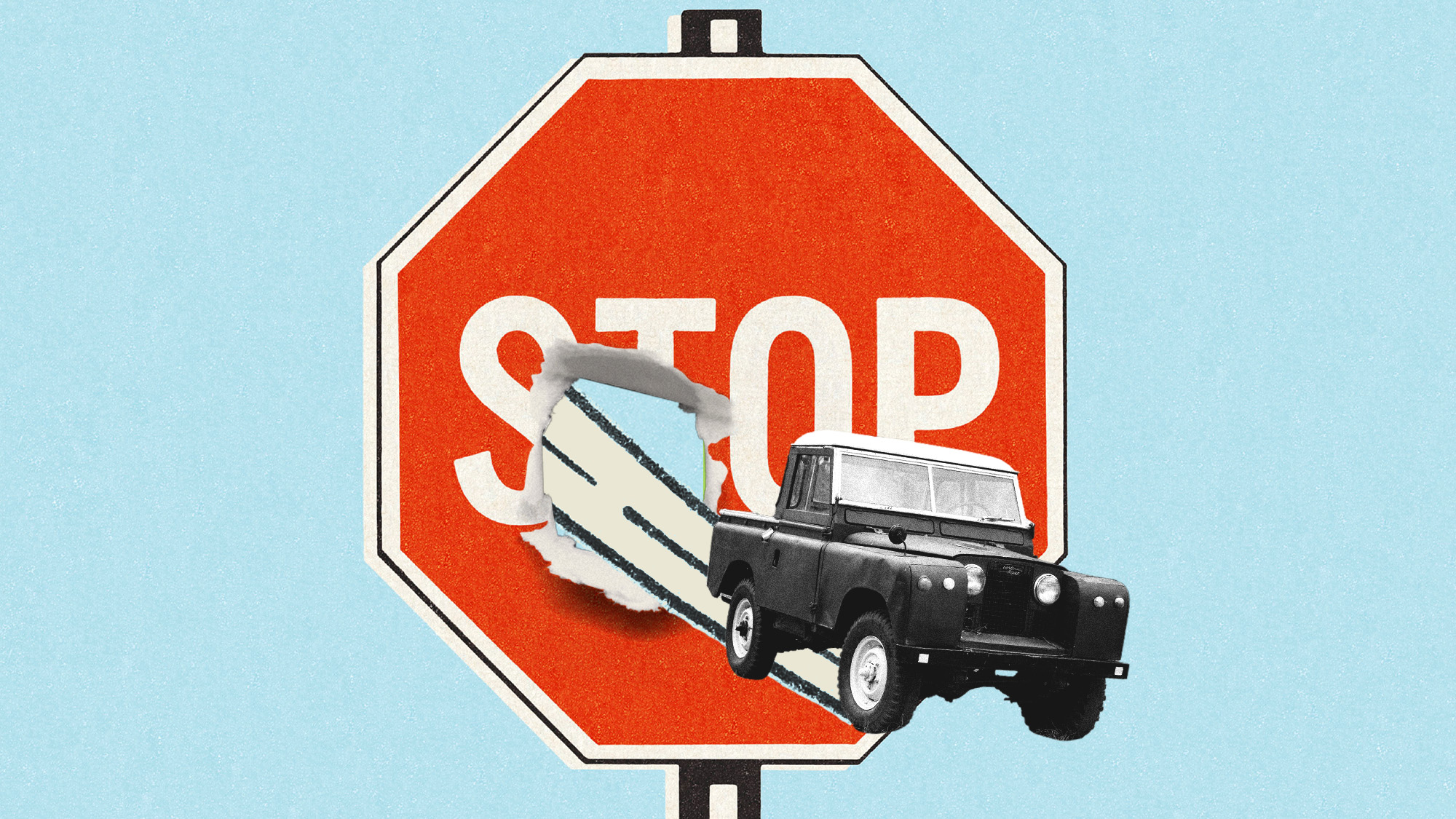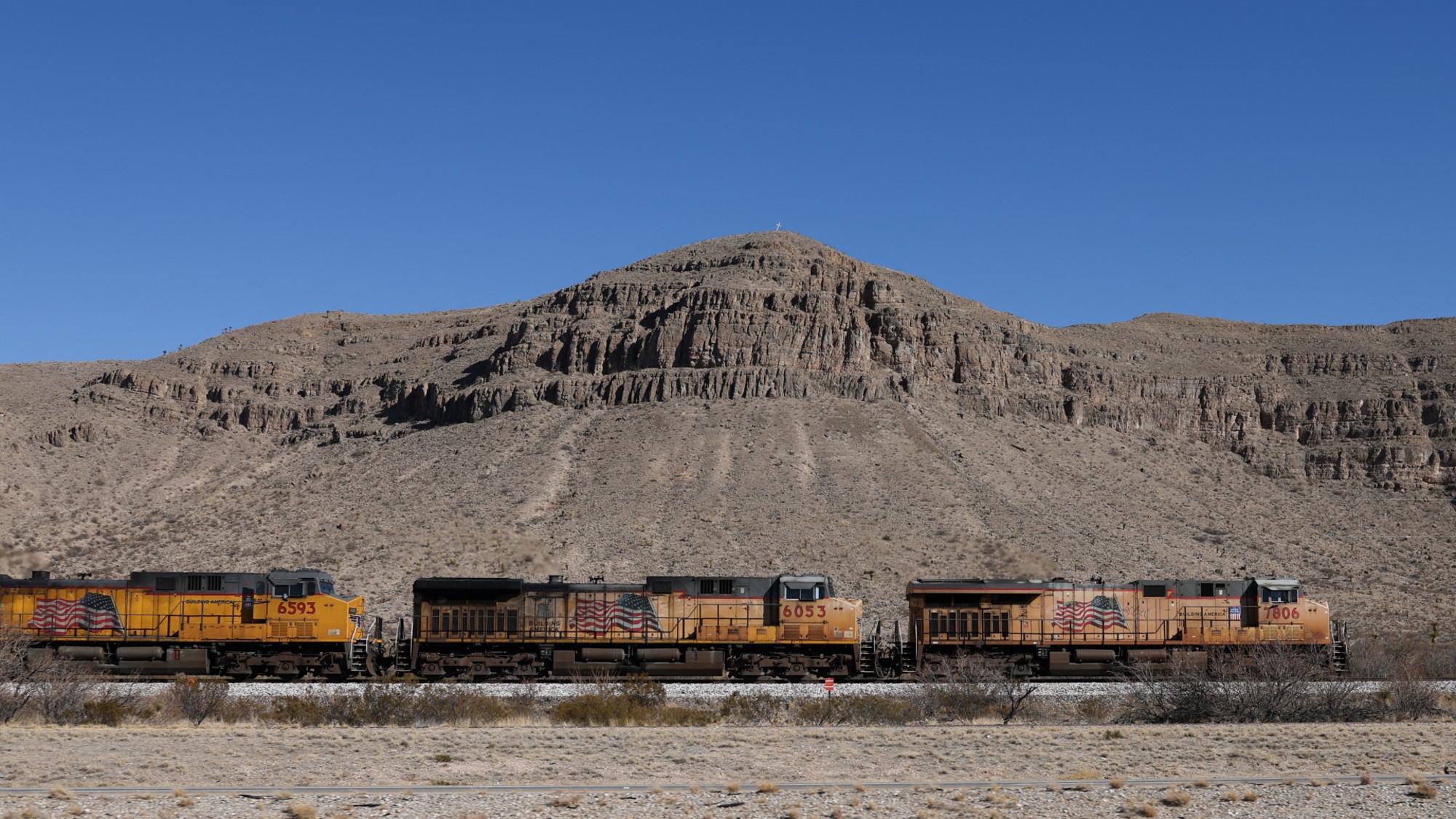Donald Trump's model of the presidency is The Apprentice
And a White House ruled by 'You're fired!' would be disastrous


After a convention widely considered a near-apocalyptic disaster, the electorate should have a pretty good idea of what kind of campaign Donald Trump is going to run: one based overwhelmingly on fear, and on Trump's unique ability to quell that fear through vigorous leadership.
But what kind of leader would Trump actually be, in the unlikely event of his victory?
Consider the following dichotomy. Trump, in his acceptance speech, touched not at all on the themes that animate social conservatives. There was no mention of the need to defend traditional religious belief, or the traditional family, or the unborn. There was no invocation of the place of the divine in American life at all. The party platform, on the other hand, is a reactionary document that is obsessed with these very issues, and that has lurched further to the right on them even as the country has moved the other way.
The Week
Escape your echo chamber. Get the facts behind the news, plus analysis from multiple perspectives.

Sign up for The Week's Free Newsletters
From our morning news briefing to a weekly Good News Newsletter, get the best of The Week delivered directly to your inbox.
From our morning news briefing to a weekly Good News Newsletter, get the best of The Week delivered directly to your inbox.
Similarly, the nominee has repeatedly hammered on the theme of wage stagnation, and the need to reverse the decline of manufacturing and the rise of finance in the American economy. But the GOP platform has virtually nothing to say about these issues, and on the convention day ostensibly devoted to putting America back to work, the speakers focused instead on the need to put the Democratic nominee in prison.
Or consider this. After picking Indiana Gov. Mike Pence as his running mate, Trump remained uncertain enough about his choice that his agonizing leaked to the press, while in person Trump has been unable to muster even the bare minimum of normal respect for the man he wants to put a heartbeat away from the presidency. But before making the offer to Pence, Trump's own son reportedly advertised the position (to Ohio Gov. John Kasich) as the most powerful in the history of the vice presidency, with control over both domestic and foreign policy. (The Trump campaign now denies ever offering the VP slot to Kasich.)
On the one hand, Trump the nominee has staked out highly idiosyncratic territory for his campaign, leading his party in a new direction that thrills his supporters and terrifies his detractors, even when they believe he is likely to lose. But on the other hand, Trump seems to be doing nothing to actually move the party, institutionally, in the direction he claims to be leading, or even to have an interest in articulating what that direction might be. And he seems exceptionally eager to hand off the job of figuring out what he would actually do to others — others that include very traditional orthodox Republican figures like his running mate.
This might give comfort to those Republicans who strongly oppose Trump's deviations from party orthodoxy, but who see him as a vehicle, however imperfect, for getting back into power. But it shouldn't. A Trump presidency is overwhelmingly likely to disappoint enthusiastic and reluctant supporters alike.
A free daily email with the biggest news stories of the day – and the best features from TheWeek.com
Trump appears to be operating on a model of the presidency that looks something like the role he played on The Apprentice. He will be the king, surrounded by courtiers who make proposals of various kinds, some of which get approved. When they don't work out, he'll ostentatiously banish them from court. So long as the courtiers are the ones making the suggestions for what to do, they will constrain the possible courses of action. But serving at the pleasure of the king they will have no ability to direct it. And they will be first in line for blame when and if the proposed policy goes wrong.
For example: Suppose the GOP wants a large tax cut for the highest bracket, as new Republican presidents always propose, and as Trump in fact proposed during the campaign. A Republican Congress passes the law, and Trump signs it — and then the deficit explodes, giving Trump bad press. What would President Trump do?
Not having any investment in the policy itself, most likely he would fire his Treasury secretary, denounce Congress, and demand proposals to reverse the rise in the deficit, whether by raising taxes or by cutting spending. If these reversals led to further economic dislocation, the cycle of blame would get wider — but orthodox Republicans would inevitably be in the crosshairs.
Or, let's say someone less orthodox on foreign policy gets Trump's ear, and Trump repeats comments about how Estonia is in the suburbs of St. Petersburg. When President Putin takes the opportunity to give the green light to Russian separatists in eastern Estonia to demand independence, what would President Trump do?
Not wanting to take the blame for instigating a crisis in the Baltics, most likely he would fire his secretary of state and denounce the Estonian government for provoking the separatists. When our allies express alarm, the cycle of blame would expand to include them as well. Regardless of how far the crisis escalated, purported realists and advocates of a more restrained foreign policy would get the lion's share of the blame for proposing a policy that Trump was incapable of executing.
Meanwhile, on Trump's signature issue of law and order, what is Trump going to do if crime ticks up on his watch — as well it might, given that crime rates are driven primarily by variables outside of his control — or if there is a spectacular incident like a terrorist attack, or an ambush of police such as occurred in Dallas? Would he try to calm the nation and explain that his new policies will take time to work? Isn't it more likely that he would blame the incompetence of underlings, and demand ever more alarming legislation in response?
Those who hope to subvert a Trump administration by staffing it with traditional party loyalists need to ponder what happens when Trump decides those loyalists need to be purged for failing him, and what the party will be left with when he's through. And those who are heartened by finally having a nominee who claims to be their voice need to ponder what it means when that voice seems able to say only one thing consistently: It's not my fault.
Noah Millman is a screenwriter and filmmaker, a political columnist and a critic. From 2012 through 2017 he was a senior editor and featured blogger at The American Conservative. His work has also appeared in The New York Times Book Review, Politico, USA Today, The New Republic, The Weekly Standard, Foreign Policy, Modern Age, First Things, and the Jewish Review of Books, among other publications. Noah lives in Brooklyn with his wife and son.
-
 Zimbabwe’s driving crisis
Zimbabwe’s driving crisisUnder the Radar Southern African nation is experiencing a ‘public health disaster’ with one of the highest road fatality rates in the world
-
 The Mint’s 250th anniversary coins face a whitewashing controversy
The Mint’s 250th anniversary coins face a whitewashing controversyThe Explainer The designs omitted several notable moments for civil rights and women’s rights
-
 ‘If regulators nix the rail merger, supply chain inefficiency will persist’
‘If regulators nix the rail merger, supply chain inefficiency will persist’Instant Opinion Opinion, comment and editorials of the day
-
 Bari Weiss’ ‘60 Minutes’ scandal is about more than one report
Bari Weiss’ ‘60 Minutes’ scandal is about more than one reportIN THE SPOTLIGHT By blocking an approved segment on a controversial prison holding US deportees in El Salvador, the editor-in-chief of CBS News has become the main story
-
 Has Zohran Mamdani shown the Democrats how to win again?
Has Zohran Mamdani shown the Democrats how to win again?Today’s Big Question New York City mayoral election touted as victory for left-wing populists but moderate centrist wins elsewhere present more complex path for Democratic Party
-
 Millions turn out for anti-Trump ‘No Kings’ rallies
Millions turn out for anti-Trump ‘No Kings’ ralliesSpeed Read An estimated 7 million people participated, 2 million more than at the first ‘No Kings’ protest in June
-
 Ghislaine Maxwell: angling for a Trump pardon
Ghislaine Maxwell: angling for a Trump pardonTalking Point Convicted sex trafficker's testimony could shed new light on president's links to Jeffrey Epstein
-
 The last words and final moments of 40 presidents
The last words and final moments of 40 presidentsThe Explainer Some are eloquent quotes worthy of the holders of the highest office in the nation, and others... aren't
-
 The JFK files: the truth at last?
The JFK files: the truth at last?In The Spotlight More than 64,000 previously classified documents relating the 1963 assassination of John F. Kennedy have been released by the Trump administration
-
 'Seriously, not literally': how should the world take Donald Trump?
'Seriously, not literally': how should the world take Donald Trump?Today's big question White House rhetoric and reality look likely to become increasingly blurred
-
 Will Trump's 'madman' strategy pay off?
Will Trump's 'madman' strategy pay off?Today's Big Question Incoming US president likes to seem unpredictable but, this time round, world leaders could be wise to his playbook
